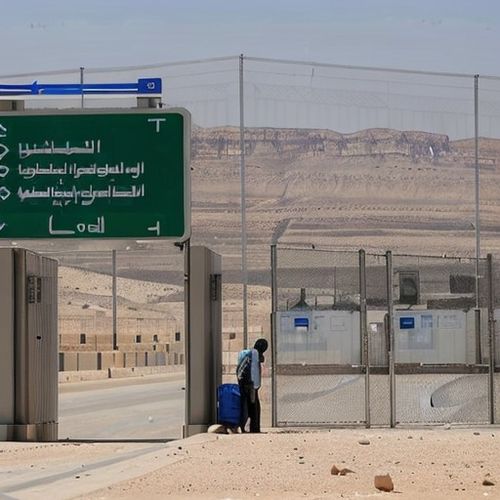The Thai government has announced a significant extension to its visa-free policy, allowing travelers from eligible countries to stay for up to 60 days without requiring a visa. This move, which doubles the previous 30-day limit, is expected to greatly benefit long-term visitors, digital nomads, and retirees who have long considered Thailand a preferred destination.
For years, Thailand has been a magnet for travelers seeking its vibrant culture, stunning landscapes, and affordable cost of living. The extension to 60 days eliminates the need for many visitors to make border runs or apply for visa extensions, simplifying their travel plans and reducing bureaucratic hurdles. This change reflects Thailand's commitment to positioning itself as a hub for long-term tourism and remote work.
The impact on long-term stayers cannot be overstated. Previously, those wishing to remain in Thailand beyond 30 days had to either leave the country and re-enter (the so-called "visa run"), apply for an extension at immigration offices, or go through the process of obtaining a proper visa before arrival. Each of these options came with its own costs, time commitments, and uncertainties. The new policy effectively removes these obstacles for two-month stays.
Digital nomads, in particular, stand to gain from this change. Thailand has emerged as one of Asia's top destinations for location-independent workers, with cities like Chiang Mai and Bangkok offering robust infrastructure, coworking spaces, and thriving expat communities. The extended stay period provides more stability for remote workers who want to base themselves in Thailand without immediately committing to longer-term visa options.
Retirees and snowbirds - those who escape colder climates during winter months - will find the 60-day window more accommodating for their seasonal stays. Many older travelers have traditionally had to navigate complex visa requirements or make multiple border crossings to enjoy extended time in Thailand's warm climate. The simplified process aligns perfectly with their travel patterns.
Tourism industry analysts predict that the policy change will lead to increased spending in the local economy. Visitors staying longer tend to spend more on accommodation, dining, and experiences beyond the typical tourist attractions. They're more likely to rent apartments rather than stay in hotels, shop at local markets instead of convenience stores, and explore lesser-known destinations outside major tourist hubs.
The timing of this announcement coincides with Thailand's push to recover its tourism sector post-pandemic. While short-term holidaymakers contribute significantly to tourist numbers, longer-staying visitors often provide more sustainable revenue streams for local businesses. This strategic move may help Thailand attract a different caliber of traveler - one who spends more and stays longer.
It's worth noting that the visa exemption applies to passport holders from specific countries, primarily Western nations and some Asian economies. Travelers should verify their eligibility before making plans. The exemption is for tourism purposes only, and those wishing to work or study in Thailand still need to obtain appropriate visas.
Local businesses in popular expat areas have already begun adapting to the new reality. Real estate agents report increased inquiries about two-month rentals rather than the traditional one-month stays. Cafés and coworking spaces are preparing for a potential influx of longer-term customers. Language schools and cultural centers anticipate greater interest in their programs from visitors who now have time for deeper immersion.
The extended stay period also opens up opportunities for more meaningful travel experiences. With 60 days at their disposal, visitors can venture beyond the well-trodden tourist trail, perhaps spending time volunteering, studying Thai cuisine, or learning the language. This aligns with global trends toward slower, more immersive forms of travel that create deeper connections with host countries.
Some observers see this as Thailand's response to increasing competition from neighboring countries that have been rolling out their own digital nomad and long-stay visa programs. By making the initial entry process simpler and more attractive, Thailand maintains its position as the region's premier destination for extended stays while potentially encouraging some visitors to eventually transition to more permanent visa options.
Immigration lawyers and visa consultants note that while the 60-day exemption is welcome news, travelers should still be mindful of Thailand's rules regarding consecutive stays. Those wishing to remain beyond 60 days will need to explore proper visa options or face potential entry restrictions if attempting to immediately re-enter after their visa-free period expires.
The policy change has been met with enthusiasm across Thailand's tourism sector, from hoteliers in Phuket to guesthouse owners in Pai. As the world continues to embrace flexible work arrangements and alternative lifestyles, Thailand's visa exemption extension positions it perfectly to capitalize on these evolving travel patterns. For millions of potential visitors, the Land of Smiles just became significantly more accessible.
Looking ahead, industry watchers will be monitoring how this policy affects Thailand's tourism demographics and whether it leads to increased applications for longer-term visas. What's certain is that for travelers dreaming of an extended Thai getaway without paperwork headaches, the path just got much smoother. The 60-day visa-free stay represents both a practical improvement and a symbolic welcome mat to those who wish to experience Thailand beyond the typical vacation timeframe.

By Emily Johnson/Apr 11, 2025

By William Miller/Apr 11, 2025

By Benjamin Evans/Apr 11, 2025

By Grace Cox/Apr 11, 2025

By Amanda Phillips/Apr 11, 2025

By James Moore/Apr 11, 2025

By Natalie Campbell/Apr 11, 2025

By Eric Ward/Apr 11, 2025

By James Moore/Apr 11, 2025

By Emily Johnson/Apr 11, 2025

By Christopher Harris/Apr 11, 2025

By Michael Brown/Apr 11, 2025

By Rebecca Stewart/Apr 11, 2025

By John Smith/Apr 11, 2025

By Natalie Campbell/Apr 11, 2025

By Emily Johnson/Apr 11, 2025

By John Smith/Apr 11, 2025

By Michael Brown/Apr 11, 2025

By Amanda Phillips/Apr 11, 2025

By Joshua Howard/Apr 11, 2025